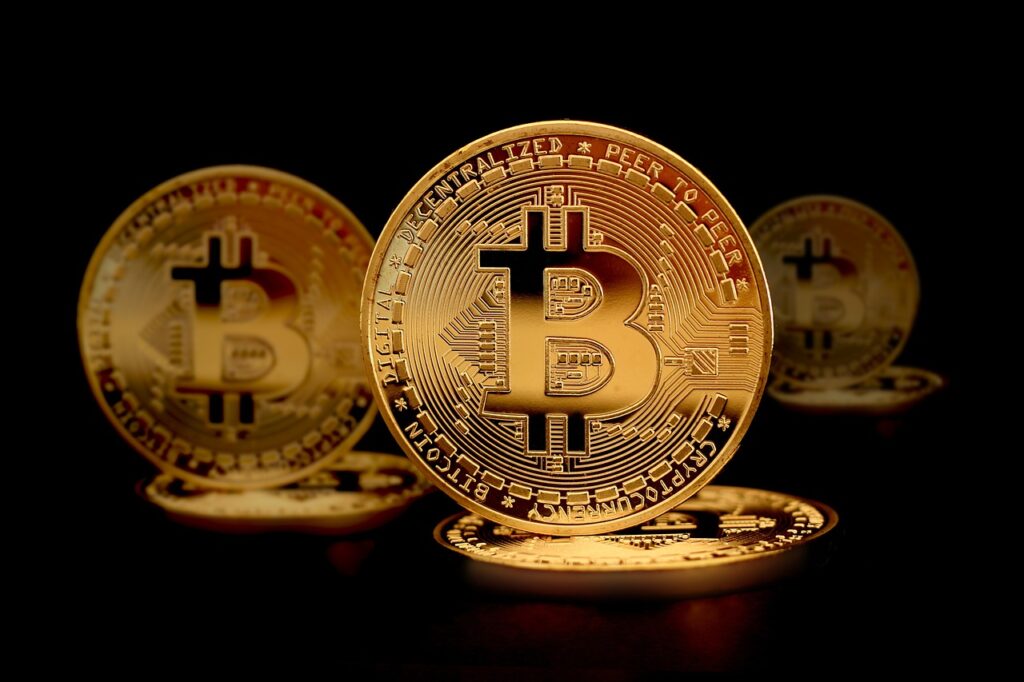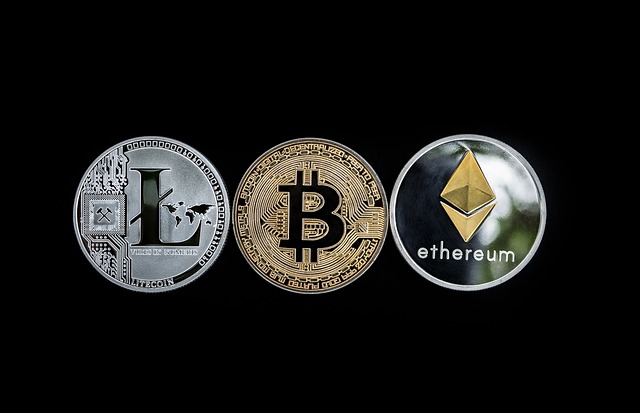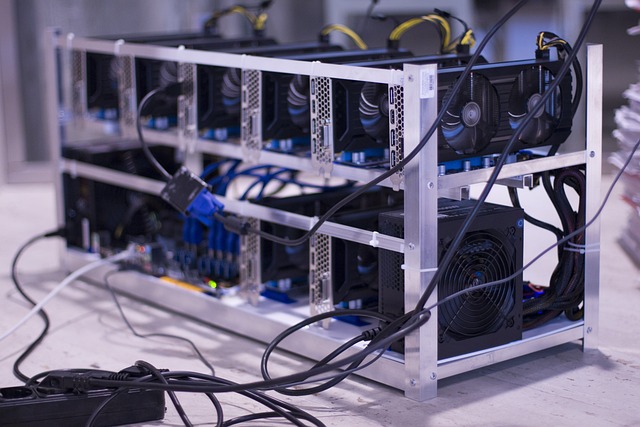DeFi Crypto Insights: Trends and Opportunities in [Year]
DeFi Crypto Insights: Trends and Opportunities in [Year]

The Rise of Decentralized Finance: Exploring the growing popularity and adoption of DeFi in the crypto industry
Decentralized Finance, commonly known as DeFi, has been on a steady rise in the crypto industry. It is gaining immense popularity and witnessing widespread adoption by both individuals and institutions. What sets DeFi apart from traditional financial systems is its decentralized nature, which eliminates the need for intermediaries like banks and financial institutions. This not only makes financial services more accessible but also offers greater transparency and inclusivity.
One of the key driving factors behind the growing popularity of DeFi is its ability to provide individuals with greater control over their financial assets. With DeFi, users can directly interact with various financial services, such as lending, borrowing, and trading, without having to rely on centralized authorities. This not only gives individuals the freedom to manage their finances but also eliminates the risks associated with trusting third parties. Additionally, DeFi platforms often operate on blockchain technology, which provides an immutable and transparent ledger of all transactions, ensuring trust and security in the ecosystem.
Understanding the Core Principles of DeFi: Explaining the key concepts and principles that underpin decentralized finance
Decentralized Finance, commonly referred to as DeFi, is a rapidly growing sector within the cryptocurrency industry that aims to revolutionize traditional financial systems.

Another key principle of DeFi is the concept of open and permissionless access. Unlike traditional financial systems that require individuals to meet certain criteria or go through lengthy verification processes, DeFi platforms are accessible to anyone with an internet connection. This increased accessibility not only allows individuals from underserved regions to participate in financial services but also fosters financial inclusivity on a global scale. Moreover, DeFi promotes transparency by providing publicly verifiable transaction records on the blockchain, ensuring accountability and trust among participants. These core principles form the foundation of DeFi and serve as a guiding force in its rapid development and adoption in the crypto industry.
Exploring the Advantages of DeFi: Highlighting the benefits of DeFi such as increased accessibility, transparency, and financial inclusivity
Decentralized Finance (DeFi) offers a range of advantages that make it increasingly attractive to users in the crypto industry. One of the main benefits of DeFi is its increased accessibility. Unlike traditional financial systems, which may require cumbersome paperwork and lengthy approval processes, DeFi platforms allow users to access financial services with just an internet connection and a cryptocurrency wallet. This level of accessibility opens up opportunities for individuals who are unbanked or underbanked, enabling them to participate in the financial ecosystem and take advantage of various investment and borrowing opportunities.
Transparency is another key advantage of DeFi. The blockchain technology that underpins DeFi protocols ensures a high degree of transparency in transactions and operations. Every transaction made on a DeFi platform is recorded on the blockchain, making it visible to all participants. This transparency helps to build trust among users since they can verify the integrity of the system and track the movement of their assets in real-time. Additionally, the use of smart contracts in DeFi eliminates the need for intermediaries, reducing the likelihood of fraud or manipulation. By providing a transparent and secure environment, DeFi offers users peace of mind and fosters a more open and accountable financial ecosystem.
Financial inclusivity is a crucial advantage that DeFi brings to the table. Traditional financial systems often exclude certain segments of the population due to various barriers, such as high fees, complex requirements, or geographical limitations. DeFi disrupts these barriers by eliminating gatekeepers and providing equal access to financial services for all participants. Anyone with an internet connection can join the DeFi ecosystem and engage in activities such as lending, borrowing, and earning interest on their assets. This inclusivity empowers individuals who previously lacked access to financial services and creates opportunities for wealth creation and financial stability.
In summary, DeFi’s advantages in terms of increased accessibility, transparency, and financial inclusivity demonstrate its potential to revolutionize the financial industry. By removing barriers and creating a more accessible and transparent ecosystem, DeFi opens up a world of possibilities for individuals around the globe. As we explore further, we will delve into the notable DeFi projects and platforms that are driving this revolution and shaping the future of finance.
• Increased accessibility: DeFi platforms allow users to access financial services with just an internet connection and a cryptocurrency wallet, making it easier for unbanked or underbanked individuals to participate in the financial ecosystem.
• Transparency: The use of blockchain technology ensures transparency in transactions and operations. Every transaction made on a DeFi platform is recorded on the blockchain, visible to all participants, building trust and reducing fraud.
• Financial inclusivity: DeFi eliminates barriers such as high fees, complex requirements, or geographical limitations that often exclude certain segments of the population from traditional financial systems. Anyone with an internet connection can join the DeFi ecosystem and engage in activities like lending, borrowing, and earning interest on their assets.
Overall impact: These advantages demonstrate how DeFi has the potential to revolutionize the financial industry by providing equal access to financial services for all participants globally.
Notable DeFi Projects and Platforms: Discussing some of the prominent DeFi projects and platforms that are revolutionizing the financial landscape
Decentralized finance (DeFi) has gained significant traction in the crypto industry, with several notable projects and platforms emerging as game changers in the financial landscape. One such project is Aave, a decentralized lending protocol that allows users to lend and borrow various cryptocurrencies. Through smart contracts, Aave eliminates the need for intermediaries, providing users with greater control and flexibility over their assets. This innovative platform has not only democratized access to lending and borrowing but has also introduced features like flash loans, enabling users to borrow without collateral. As a result, Aave has revolutionized the lending market, making it more inclusive and open to a wider range of participants.
Another prominent DeFi project that has captured attention is Uniswap, a decentralized exchange (DEX) protocol built on top of the Ethereum blockchain. Uniswap utilizes an automated market maker (AMM) system, where users can provide liquidity to different token pairs and earn fees for their participation. What makes Uniswap unique is its permissionless model, allowing anyone to create a trading pair without the need for intermediaries or centralized gatekeepers. This open and inclusive nature of Uniswap has driven its popularity, making it one of the most widely used DEX platforms in the DeFi space. By enabling peer-to-peer trading of tokens, Uniswap has transformed the way users exchange assets, providing a more efficient and transparent alternative to traditional centralized exchanges.
These are just two examples of the notable DeFi projects and platforms that are reshaping the financial landscape. The decentralized nature of these projects not only increases accessibility but also promotes trust and transparency, all while eliminating the need for intermediaries. As DeFi continues to evolve, it is likely that we will witness the emergence of even more innovative projects and platforms that will further revolutionize the way we interact with financial services.
Analyzing the Market Trends in DeFi: Examining the current trends and developments in the DeFi space, including tokenization and yield farming
Tokenization and yield farming are two significant trends that have gained tremendous traction in the decentralized finance (DeFi) space. Tokenization refers to the process of converting real-world assets, such as real estate or stocks, into digital tokens that can be traded on blockchain networks. This innovation unlocks a plethora of opportunities, allowing fractional ownership, easy transferability, and increased liquidity for traditionally illiquid assets. Tokenization brings a new level of accessibility and efficiency to the financial markets, enabling individuals from all over the world to participate in previously exclusive investments.
On the other hand, yield farming has emerged as a popular practice in DeFi, leveraging various protocols to maximize returns on cryptocurrencies. Yield farming involves depositing cryptocurrencies into liquidity pools or lending platforms to earn interest or additional tokens as rewards. This strategy incentivizes users to provide liquidity to DeFi platforms and contributes to the overall growth and sustainability of the ecosystem. However, it is important to note that yield farming carries certain risks as well, as the protocols used may be subject to vulnerabilities or potential exploitation. Therefore, it is crucial for participants to thoroughly research and understand the underlying mechanisms before engaging in yield farming activities.
Opportunities for Investors in DeFi: Identifying potential investment opportunities in DeFi and providing insights on how to navigate this rapidly evolving market
Investing in decentralized finance (DeFi) presents a myriad of opportunities for investors seeking to diversify their portfolios and tap into the rapidly evolving market. One of the key investment opportunities in DeFi lies in yield farming. Yield farming entails earning additional tokens by providing liquidity to decentralized exchanges or lending platforms.

Another avenue for investment in DeFi is through decentralized lending and borrowing protocols. These platforms allow individuals to lend their assets and earn interest, or borrow assets by providing collateral. This provides an opportunity for investors to earn passive income by lending their idle assets and also offers an alternative source of financing for those seeking loans. However, investors must be aware of the risks involved, such as potential loan defaults or the volatility of collateral assets. Assessing the lending protocols’ security measures, reputation, and decentralized governance models can help mitigate some of these risks and increase the chances of successful investments in the DeFi lending space.
Navigating the rapidly evolving DeFi market requires careful attention to market trends, project fundamentals, and risk management strategies. As the DeFi ecosystem expands and new projects emerge, it is crucial for investors to stay informed and adapt to changing market conditions. A diversified investment approach, spreading investments across different projects and asset classes, can help mitigate risks and capture potential opportunities. Moreover, keeping a keen eye on the regulatory landscape and developments can provide insights into potential challenges or opportunities that may arise in the future. The ever-changing nature of the DeFi space requires investors to be agile, proactive, and well-informed to make the most of the investment opportunities it presents.
Challenges and Risks in DeFi: Discussing the potential risks and challenges associated with DeFi, including smart contract vulnerabilities and regulatory concerns
Decentralized Finance (DeFi) has garnered immense attention and adoption in recent years, revolutionizing the traditional financial landscape. However, with its growth, several challenges and risks have emerged, which need to be carefully considered. One of the key concerns in DeFi is smart contract vulnerabilities. Smart contracts are the backbone of DeFi protocols, automating various financial transactions and agreements. However, if these contracts are not properly audited or have coding flaws, they can be exploited by hackers, leading to substantial financial losses for users.
Another challenge that DeFi faces is regulatory concerns. Unlike traditional financial systems, DeFi operates in a decentralized and largely unregulated manner. While this provides individuals with more autonomy and control over their finances, it also poses risks. Regulators are grappling with how to effectively oversee and regulate the DeFi space, as it operates across borders and outside of traditional financial institutions. Therefore, there is a need to strike a balance between fostering innovation and protecting investors and users from potential fraudulent activities or scams.
The Role of Governance in DeFi: Exploring the role of decentralized governance models in the management and decision-making processes of DeFi protocols
Governance plays a crucial role in the decentralized finance (DeFi) ecosystem as it ensures the effective management and decision-making processes of DeFi protocols. Unlike traditional financial systems where decision-making is centralized and controlled by a few entities or institutions, DeFi platforms are built on decentralized governance models. These models empower token holders to participate in the decision-making process and shape the direction of the protocol.
One key feature of decentralized governance is the use of voting mechanisms to propose and decide on changes or updates to the protocol. Token holders can submit proposals and vote on them, allowing for a more inclusive and democratic decision-making process. This gives individuals a greater say in the governance of the protocol, making DeFi platforms more transparent and accountable. Additionally, decentralized governance also allows for faster decision-making as there is no need for lengthy bureaucracy or intermediaries.

DeFi and Traditional Finance: Analyzing the potential impact of DeFi on traditional financial systems and institutions
DeFi, or decentralized finance, has emerged as a disruptive force in the financial industry, challenging traditional finance systems and institutions. With its ability to bypass intermediaries and provide financial services in a decentralized manner, DeFi has the potential to revolutionize the way we engage with money, investments, and banking. Unlike traditional finance, which relies on centralized authorities such as banks and regulatory bodies to facilitate transactions and manage assets, DeFi operates on blockchain technology, offering transparent and programmable financial applications.
The impact of DeFi on traditional finance could be far-reaching. One of the key advantages of DeFi is its increased accessibility. Traditional financial systems often exclude individuals who lack access to bank accounts or credit facilities. In contrast, DeFi allows anyone with an internet connection to participate in financial activities, opening up opportunities for the unbanked and underbanked populations. Moreover, DeFi’s transparency and open-source nature could enhance financial inclusivity by providing equal access to financial products and services to individuals worldwide, regardless of their socio-economic background.
The Future of DeFi: Speculating
Looking ahead, the future of DeFi appears to be filled with both excitement and uncertainty. As the technology continues to evolve and gain traction, it is expected that we will see an explosion of innovative solutions and applications in the coming years. With decentralized finance offering increased accessibility, lower costs, and greater financial inclusivity, it has the potential to reshape traditional financial systems and democratize access to financial services for individuals around the world.
However, as with any emerging technology, there are bound to be challenges and hurdles along the way. One of the key areas of concern is the regulatory landscape surrounding DeFi. As the industry expands and attracts more attention from regulators, it will be crucial to strike a balance between fostering innovation and ensuring consumer protection. Additionally, there will likely be ongoing debates and discussions around governance models and how to ensure the long-term sustainability and security of DeFi protocols. Despite these challenges, the future of DeFi holds immense promise and it will be fascinating to witness how it unfolds in the years to come.
What is DeFi?
DeFi stands for decentralized finance, which refers to a new financial system that operates on blockchain technology without the need for intermediaries like banks.
Why is DeFi becoming so popular?
DeFi is gaining popularity because it offers increased accessibility, transparency, and financial inclusivity. It allows anyone with an internet connection to access financial services without relying on traditional institutions.
What are the key principles of DeFi?
The core principles of DeFi include decentralization, transparency, interoperability, and open-source code. These principles ensure that the financial system is accessible, secure, and free from centralized control.
What are the advantages of DeFi?
DeFi offers several advantages, including the ability to earn higher yields on investments, participate in governance decisions, and access financial services without the need for a bank account or credit history.
Can you name some notable DeFi projects and platforms?
Sure! Some prominent DeFi projects and platforms include Compound, MakerDAO, Uniswap, Aave, and Yearn.finance. These platforms are revolutionizing the financial landscape by providing innovative solutions for lending, borrowing, and trading.
What are the current market trends in DeFi?
Tokenization and yield farming are two significant trends in the DeFi space. Tokenization involves representing real-world assets, such as real estate or artwork, as digital tokens on the blockchain. Yield farming, on the other hand, refers to the practice of earning rewards by staking or lending cryptocurrencies.
Are there any investment opportunities in DeFi?
Yes, there are potential investment opportunities in DeFi. Investors can participate in liquidity mining, yield farming, or invest in DeFi tokens. However, it’s important to do thorough research and understand the risks associated with these investments.
What are the risks and challenges in DeFi?
Some risks in DeFi include smart contract vulnerabilities, hacking, and regulatory concerns. Smart contract bugs could lead to financial losses, while regulatory challenges may arise due to the evolving nature of DeFi and its interaction with traditional finance.
How does governance work in DeFi?
Decentralized governance models allow community members to participate in decision-making processes of DeFi protocols. Token holders often have voting rights and can propose and vote on changes to the protocol.
What impact could DeFi have on traditional finance?
DeFi has the potential to disrupt traditional financial systems and institutions. It could provide alternatives to traditional banking services, enable cross-border transactions without intermediaries, and increase financial inclusivity for underserved populations. However, it may also face resistance from traditional players and regulatory challenges.
Todays Featured Product:
Buy, exchange and grow your crypto securely with a Ledger hardware wallet, combined with the Ledger Live app. It’s never been easier to keep your crypto safe and accessible. Buy direct from Ledger.com and get todays Special Offers Here.




